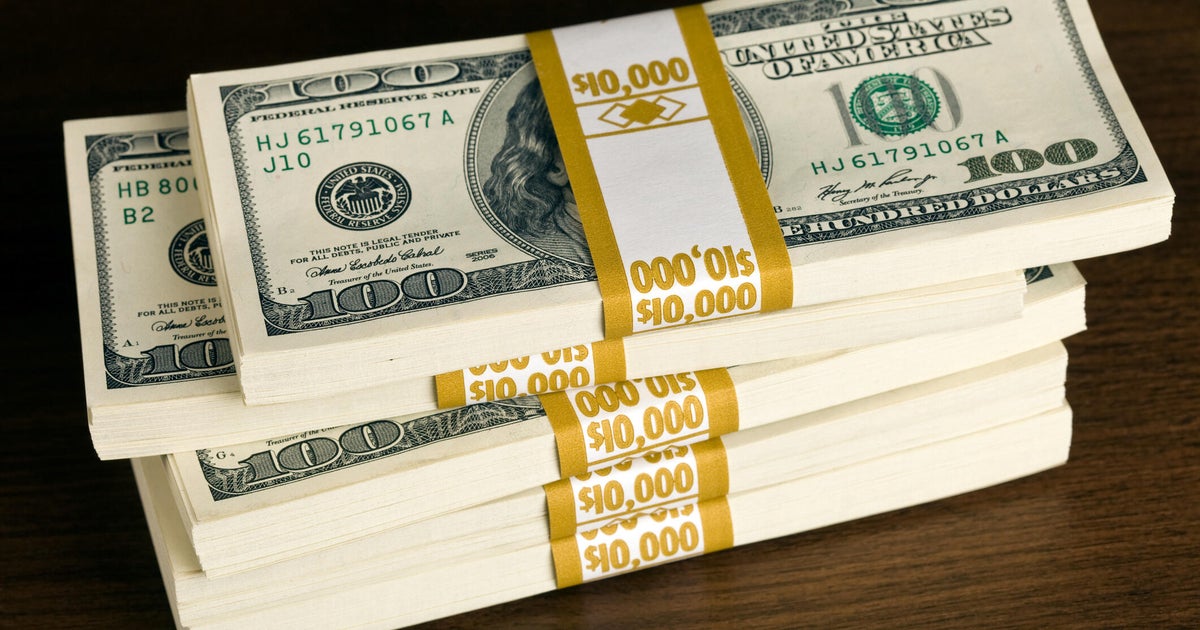What's the maximum amount you should deposit in a CD? What experts say
While interest rates were extremely low during the pandemic, the overall rate environment has been elevated over the last year or so to try and temper the ongoing issues with high inflation. And, while today's rates can hurt potential borrowers when it comes to things like home and car loans, the current high-rate environment isn't all bad. After all, a higher Fed rate also generally leads to higher interest rates on deposit accounts, including certificates of deposits (CDs) — which can be a big benefit for savers.
And, since opening a CD results in locking in your interest rate for the full CD term, you earn the same rate until your account hits maturity. And, since many experts expect a rate drop to occur later this year, this is a good time to consider opening one and locking in one of today's high CD rates. But what's the maximum you should deposit into a CD if you do open an account? Here's what you should know.
Find out what today's top CD accounts can offer you right now.
What's the maximum amount you should deposit into a CD? What experts say
Opening a CD and depositing any amount could be a smart move right now, experts say, and that's especially true for certain types of savers.
"CDs can play an important role in almost any portfolio by providing principal protection while generating a fixed guaranteed interest rate," Dena Rothmann, managing vice president of retail and branch banking at Travis Credit Union, says. "This could be attractive for retirees or anyone saving up for a large purchase like a home."
But while most banks have minimum opening deposit requirements on CD accounts, only a few have maximums, which could make it difficult to determine the right amount to deposit.
That said, there are factors that could lead you to limit your deposit amount — including the maximum amount your CD account is insured for by the NCUA or FDIC, which is typically $250,000 per depositor, per account.
"There is no hard and fast rule on the maximum amount," says Kevin L. Matthews II, founder of BuildingBread, a wealth education company. "But you should consider that the FDIC only protects your money up to $250,000 if a bank fails."
By keeping your CD investment balances at or under the FDIC-insured maximum limit, you'll get all your money back if a bank goes under. Anything extra could be risky if the bank doesn't make it.
"If someone has more than the FDIC limit and wants to put more into a CD, you can increase your FDIC protection by going to a different bank or considering adding a beneficiary to the account," Matthews says.
And, while putting money in a CD is generally safe overall, you might risk losing some earning potential with this investment.
"There is risk in any investment," says Rothmann. "For a CD, the risk is interest rate and inflation. Therefore, investing too much of your assets into a CD may not overcome inflation which, over the long term, compromises your purchasing power."
In turn, it could make sense to spread your money around to different types of accounts to ensure you're maximizing the returns, especially in today's unusual economic environment.
The right strategy, though, depends on your expectations and what you want out of your investments.
"Determine what your investment goals, risk and diversification strategy are," Rothmann says. "Then, depending on what the goals are for the excess cash, you can determine which type of investment you should consider."
For example, access to your money may be a priority — and a CD account could limit that. If you deposit all of your money into a CD and need to access it before the account hits maturity, you'll likely need to pay an early withdrawal penalty to do so.
In turn, some savers may want to deposit at least some of the cash they have earmarked for a CD into an account that's easily accessible, like a high-yield savings account — many of which offer interest rates that are near or comparable to CD accounts right now. Others may want to put money into the stock market, a money market account or another type of investment instead.
The best way to determine the maximum amount to deposit into a CD is to consider both the limitations of NCUA and FDIC insurance as well as your short- and long-term money goals.
"I think the best way is to work backward," Matthews says. "CDs require you to keep your money with the bank, sometimes for years. So, start with the money you need and consider other planned expenses. Then, you can allocate what's left over to the CD."
Learn more about the top rates you could earn on today's best CD account options.
The bottom line
Given today's high CD rates, it can be wise to put at least some money into a CD account and lock in the returns right now — before rates have the opportunity to drop in the future. But determining the maximum amount to deposit in a CD is important, and it ultimately boils down to your weighing your money goals, your potential need for access and your risk tolerance.
"If you can lock up your funds for a longer period and not worry about having to get into it, then a CD may be the best option," Rothmann says. "I always recommend getting at least two opinions about your investment options and read all the disclosures to understand true costs and risks before making any final decisions."




